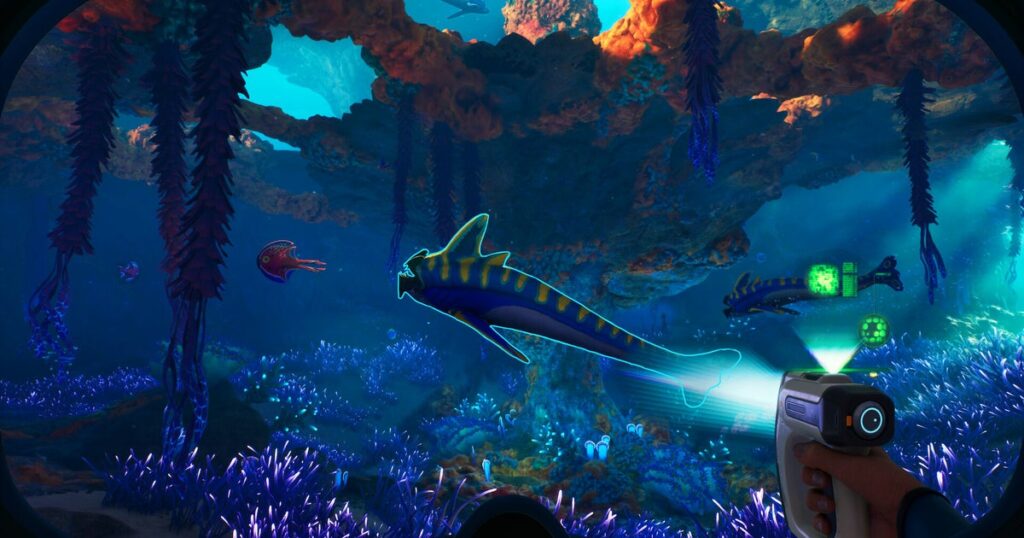“We’re all pretty happy,” beams Logie MacDonald, communications manager at UKIE.
The trade association has welcomed with open arms the publication of the UK government’s Creative Industries Sector Plan this week – a plan that MacDonald says satisfies many of UKIE’s proposals. “We’ve never seen this level of support before,” he says. “It’s a really big moment.”
He thinks the plan indicates a change of tone from the UK government. “In the past, video games have never really been front and centre of these things,” he says. “But they’re slowly gaining respect, and I think now they’re put on an equal footing with the other creative industries.”
Indeed, the games sector is given due prominence in the report, placed as it is just behind the section on film and TV. MacDonald also notes that Lisa Nandy, Secretary of State for Culture, Media and Sport, has been mentioning games more often. “Keir Starmer, I think, mentioned games one or two times as well.”
It’s a welcome change of tack from typical government rhetoric, he thinks. “The fishing industry gets mentioned a lot on government election campaigns, and it’s actually things like games that are really driving growth,” he points out.
(As a whole, the UK fishing industry landed sea fish with a value of £1.1 billion in 2023. In the same year, the UK video game market was worth £7.82 billion.)
Behind the scenes, UKIE has been busy. “The process for the whole industrial strategy started mid-last year, and the creative industries were asked to contribute,” says MacDonald. “So we contributed to various different aspects of it.”
UKIE is also the secretariat for the Video Games and Esports APPG (All-Party Parliamentary Group), which is chaired by Charlotte Nichols MP. “I think there’s nearly 40 MPs that sit on that group,” says MacDonald. “So that’s kind of like our main channel into government.”
Funding boost
In terms of video games, the headline announcement of the Creative Industries Sector Plan is a £30 million ‘Games Growth Package’, with this government funding spread over three years between 2026 and 2029.
Part of that £30 million (it’s currently not clear exactly how much) will go to the UK Games Fund (UKGF), which was established in 2015 chiefly as a way to provide funding for prototypes. The total amount pumped into the fund up until now by the UK government has been around £16.2 million, so the new funding announcement potentially represents a hefty increase.
“This is fantastic news for any small company looking to scale up,” enthuses MacDonald, adding that it’s also good for “students who are looking to start their first games company.”
“It’s really positive that [UKGF funding has] been renewed for not just next year with more money, but over a three year period,” he adds, noting that a boost to the UKGF was part of UKIE’s manifesto. “We’re not quite on the same level as Germany and other places, but it’s a big step forward.”

Another, unspecified portion of that £30 million will go to Games London, which runs the London Games Festival.
“I think the idea is that they’re looking at what’s the best way to put UK games on the global map,” says MacDonald. “And I think Games London is a really good way of doing that. If you look at the equivalents in other countries, in [Japan], in the US, in China, those kinds of big game festivals are a fantastic way of attracting inward investment.”
Games London has said that the “investment and revenue generation” from the London Games Festival will double as a result of this additional funding, potentially up to £30 million per year.
Skills and training
The problem of a skills shortage in the UK games sector has been widely discussed, with TIGA reporting that half of games businesses in the UK found it difficult to fill vacancies in 2024 as a result of shortages in certain skills.
The Creative Industries Sector Plan goes some way towards addressing this by announcing the formation of a strategy developed by the “sector-convened UK Games Skills Network, which will build on findings from the upcoming Creative Industries Council Skills Audit”. An industry-led body focused on solving the skills crisis is something that Skillful’s Gina Jackson called for last year.

MacDonald says that part of the strategy will probably involve “looking at how we can change visa regimes to get the right skills from abroad”.
In addition, the Creative Industries plan highlights the Department for Science, Innovation & Technology’s TechFirst programme, which aims to help “7.5 million UK workers to gain essential AI skills by 2030”.
“The government’s quite keen to identify what’s the best place to spend money when it comes to skills,” says MacDonald. “So we’re doing a separate piece of work on skills. And UKIE’s put together a bit of a group with the leading figures in the industry who are interested in this area. We’re working with some companies who are doing really good stuff with apprenticeships and entry-level roles.”
UK Video Game Council
Another eye-catching announcement in the report is the formation of the UK Video Games Council, which will “work with the government and the Creative Industries Council to support growth of the video games sector”.
“It’s something that a lot of industries have and something that games doesn’t have,” says MacDonald, adding that the council will be made up of around 15 to 20 industry leaders.
He explains that the council will be the government’s first port of call when it comes to discussing issues like skills, AI, or funding. “The idea is that they are a representative group of people from publishing to development to service providers,” he says.
He adds that further details on the UK Video Games Council, and an announcement of who will make up its members, will be provided in the next couple of weeks.
Tax breaks
In terms of tax breaks for the UK games sector, the big news is that… nothing has changed.
The report states that the current Video Game Expenditure Credit (VGEC) will be maintained. Announced in the 2023 Spring Budget, VGEC is the replacement for the old Video Games Tax Relief (VGTR) scheme, which is slowly being phased out.
Tax relief claims in the UK leapt by 10% in 2022–23, reaching a total payout of £282 million.
MacDonald says that UKIE was campaigning for the VGEC rate to go up for both small and large studios. UKIE has proposed a 53% tax relief rate for projects with budgets of £10 million or lower, and a 39% rate for larger projects. “That hasn’t come through, and obviously that’s something we’re going to continue to push for,” he says.
“It wasn’t something we were expecting to see, to be honest,” he adds, noting that it’s hard to defend tax breaks when “money’s tight in government and they’re looking for areas to slash”.
“When games cost so much to make these days, you need every little bit of help you can find”
Logie MacDonald, UKIE
But he points to UKIE’s research indicating that this extra tax relief would more than pay for itself. In terms of return on investment, UKIE estimates that higher rate would generate an additional £1.87 for every £1 in VGEC disbursements.
“And if we’re looking forward to the next 10, 20 years, we want both big and small companies to start to create a game here rather than in France or North America,” adds MacDonald.
“When games cost so much to make these days, you need every little bit of help you can find. And we know that when publishers are deciding where to develop a game, [tax relief is] one of the main things they look at. If our rate is lower than somewhere else, then it’s an easy decision.”
So, even though UKIE broadly welcomes the changes in the Creative Industries Sector Plan, there’s clearly still room for improvement.
“There’s always more to be done,” MacDonald concludes.











